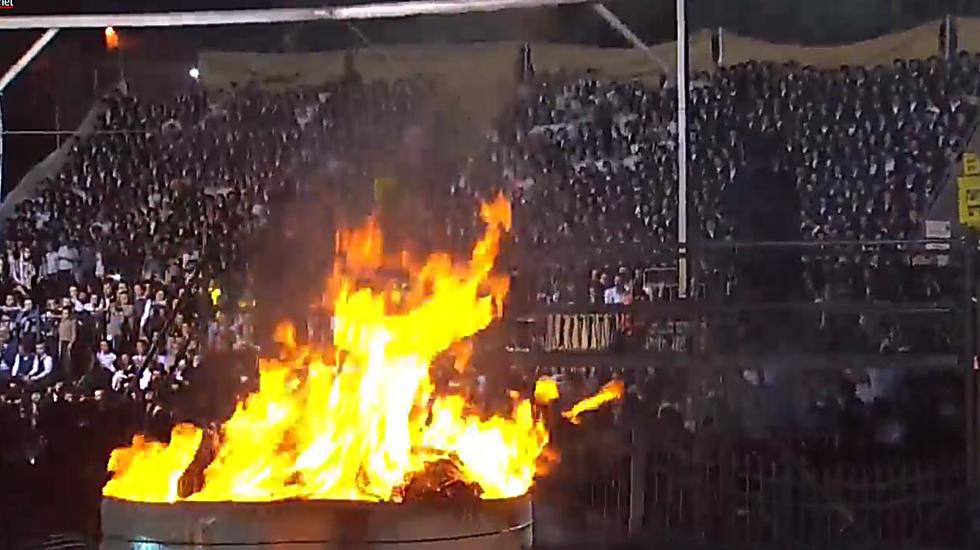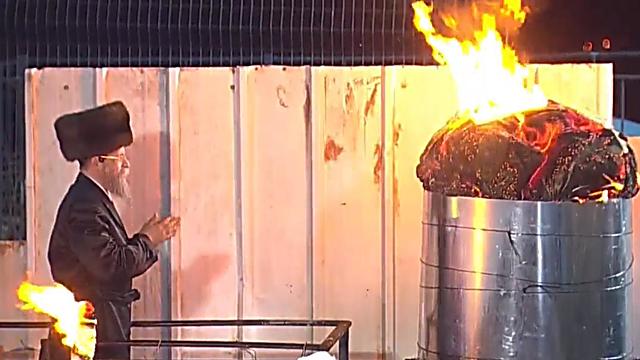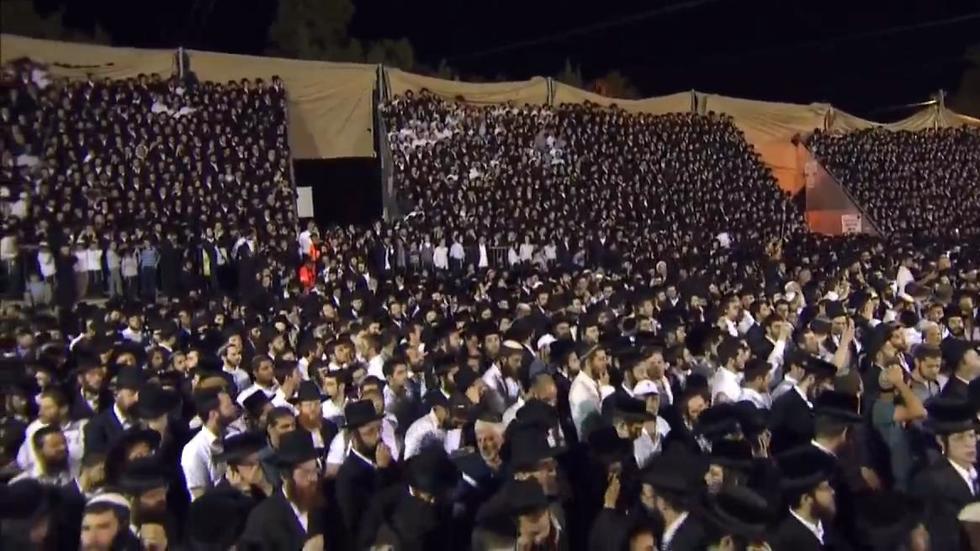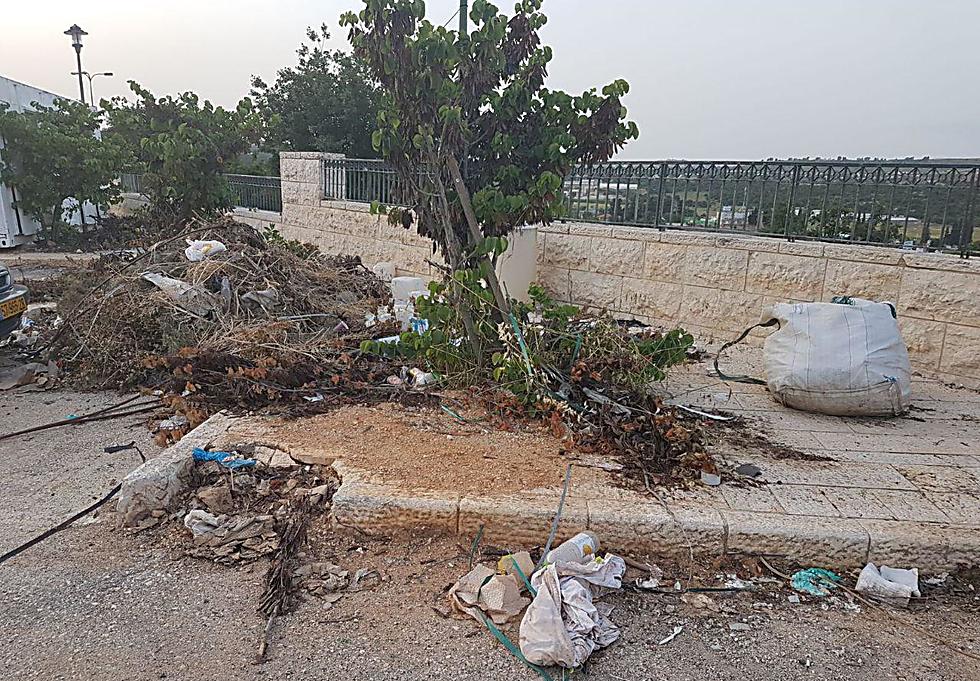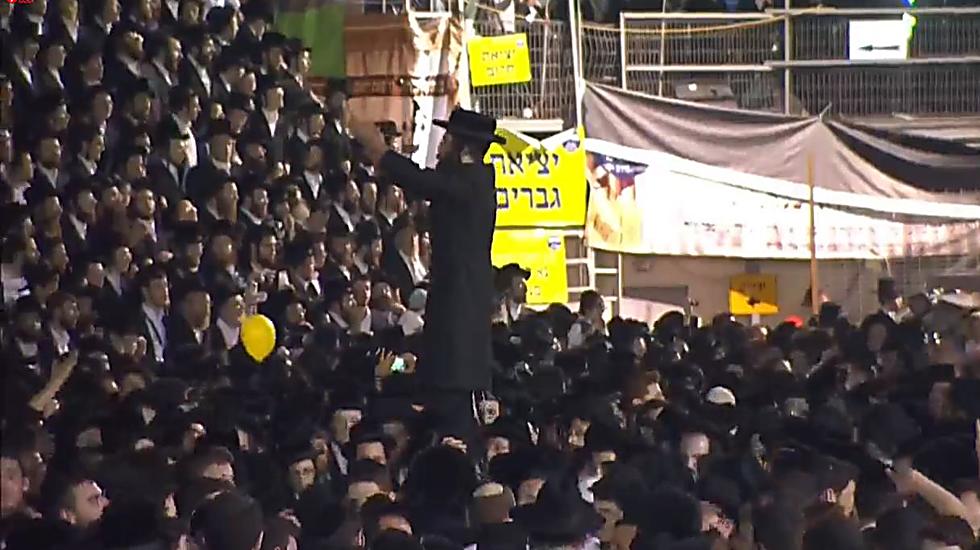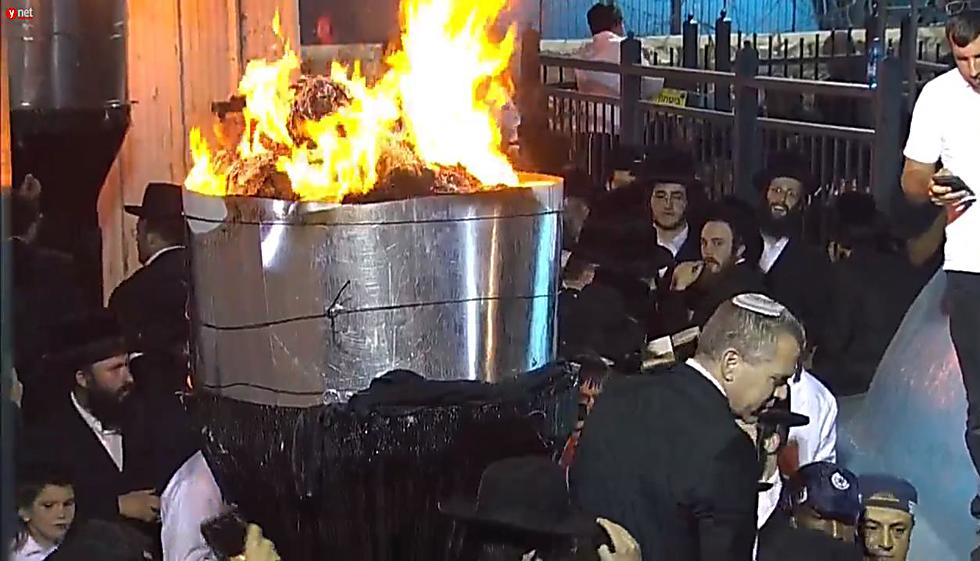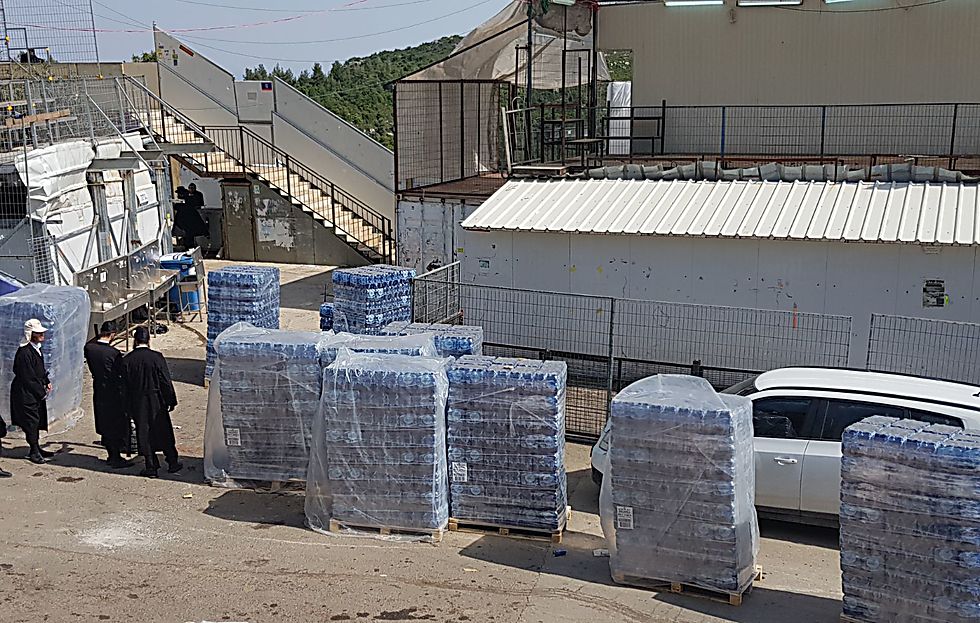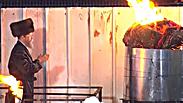
Thousands gather in Meron for Lag B'Omer celebration
Some half a million pilgrims arrived at Meron for the largest annual event in Israel; air conditioned prayer tents, hundreds of thousands of liters of drink, food, and increased medical and police presence prepared for pilgrims.
Thousands of people gathered in the Galilee town of Meron Wednesday night to celebrate the annual Lag B'Omer pilgrimage, as police estimated that hundreds of thousands would attend the Kabala-oriented event which grows larger every year.
Many religious Jews believe that making the Lag B'Omer pilgrimage to the gravesite of the second century Talmudic sage Rabbi Shimon Bar Yohai (acronym: Rashbi) in Meron, just West of Safed, brings about good fortune and blessings.
Lag B'Omer, or “the 33rd of the Omer count” is the 33rd day in a seven week count from Passover until the holiday of Shavuot when Jews received the Torah at Mount Sinai.
Traditionally, the passing of the sage Rabbi Shimon is commemorated on that day and also marks the end of a plague that struck thousands of students of the famed Talmudic sage Rabbi Akiva. Over the years, the day has taken on a mystical significance, based on Kabala sources.
The festivities commenced at 8:30pm Wednesday when the Rabbi of the Boyan dynasty ignited the grand bonfire adjacent to the gravesite. Although Boyan is only a relatively small Hassidic sect, a one-hundred year tradition calls for its leader to be the one to initiate the celebration.
Over the next 24 hours, 18 different Hassidic Rebbes took turns leading the dancing around the bonfire surrounded by their followers and accompanied by Klezmer music.
Public transportation only
The Ministry for Religious Affairs budgeted NIS 15 million for the event and 5,000 police officers were deployed to keep order and maintain public safety. Public transportation was also reinforced and shuttle buses were provided from Tiberias and other locations, to Meron, as private vehicles were prevented from approaching Meron for the duration of the festival (except for local residents with ID).
A hospitality organization also arranged free food and drinks for the thousands of pilgrims.
The police had been preparing for the annual event for months and began sending reinforcements to the area as early as Sunday. Thousands of police and other emergency service personnel were stationed on all routes leading to Meron.
On Wednesday afternoon, a procession carrying a Torah scroll set out from the home of the Abu family in Safed to Meron, in a 185 year old tradition. A sixth generation descendent of Rabbi Shmuel Abu, the founder of the clan led the march together with Safed Chief Rabbi Shmuel Eliyahu.
Mountains of trash
Due to a disagreement between the local Regional Council and the Ministry for Religious Services, piles of trash and tree trimmings quickly began to mount as responsibility for their removal remained in dispute.
The local council insisted that it had provided additional sanitation services, but owing to the huge influx of visitors over Lag B'Omer, they lacked the capability to cope with so much trash. Therefore, they claim, a decision was reached whereby waste removal from the gravesite area and avenues leading up to it is the responsibility of the religious ministry, which has an appropriate budget.
All major roads in the area, including highways 89, 866 and 8900 were closed to private vehicles through Wednesday night.
Wristbands for children
Police, in conjunction with ZAKA (a volunteer emergency response team), set up a booth to assist people with special needs and to distribute wristbands for children, emblazoned with the phone number of their parents or guardian.
Many ultra-Orthodox schools distributed some 6,000 of the wristbands ahead of time. ZAKA also set up a hotline, 1220, for missing children.
For the first time, handicapped accessible lavatory structures were erected at the site for women to use, instead of chemical toilets that have been used in past years. They also included nursing and diaper changing stations.
Hospitality tents
Giant air conditioner units were rented for the tents where food and drinks were provided around the clock as well as where multiple prayer quorums were expected to form throughout the day.
In an effort not to burden the existing electrical infrastructure, generators were brought in to power the air conditioners of two giant tents, one for men and one for women.
People prefer Parve food
Organizers expected an increase in demand for cold drinks this year. “We will be supplying 100,000 liters of cold water and juice,” said one volunteer. “For the women, we ordered tens of thousands of water bottles instead of disposable cups (which many men share)”.
He said that most pilgrims prefer Parve (containing neither milk or meat products) food to meat products as religious law requires a six hour wait between meat and dairy products. Half of the 500 liters of the traditional chulent stew were meatless. Bread rolls were also mezonot (sweeter than regular bread) and not hamotzi, which require ritual hand washing.
Magen David Adom prepared with hundreds of medics and paramedics to respond to emergencies. A control center and two clinics were also established for the events. At Ziv Hospital in nearby Safed, medical staff prepared themselves to deal with the expected arrival of dozens of people injured by the crush or who sustain cuts and burns or became dehydrated.
Because of the plague that struck Rabbi Akiva’s students during this period, many Jews refrain from cutting their hair and listening to music between Passover and the festival of Lag B'Omer. It has become a tradition for many parents to bring their three year old sons to Meron for their first haircut on that day.










